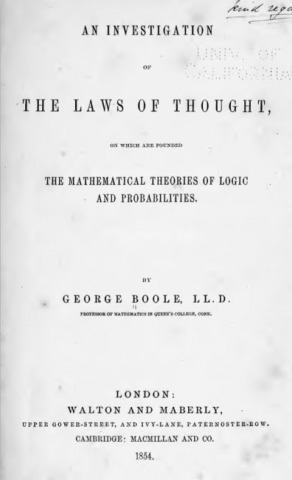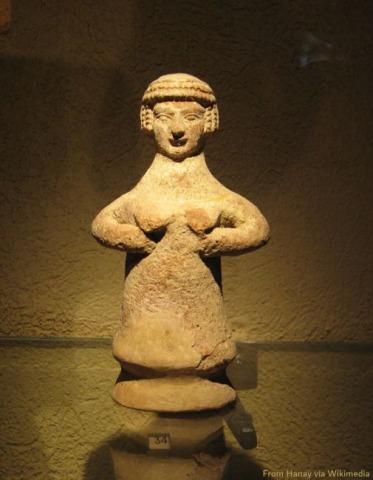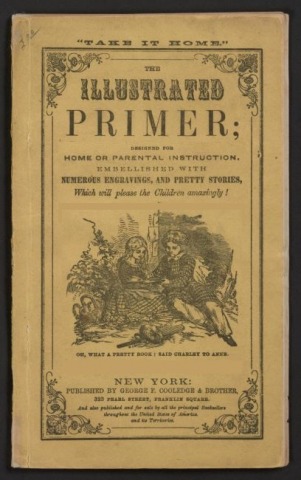
The Underground Thomist
Blog
Is Taxation Theft? When It Is and When It Isn’tMonday, 09-08-2025
One of the great moral errors of our day might be called expropriationism. If you prefer catchier labels, call it the Robin Hood Fallacy. According to this notion, government is entitled to confiscate wealth for no other reason than “doing good.” This leads to a style of politics in which the groups in power decide for us which of their own causes our wealth is to support, taking it by force. Sometimes they even offer the pretense that they are helping the needy, but usually they confuse the needy with some subset of the merely wanty – or with their partisan clients, which is even worse. Many Christians seem to miss the point, thinking that expropriation is wrong just because the wrong groups are in power, choosing the wrong causes for subsidy. This is where the horror stories are offered, and horrible they are: Of subsidies to promote abortion, subsidies to produce obscene and blasphemous “art,” subsidies for all sorts of wickedness and blasphemy. But expropriation would be wrong even if each of its causes were good. Consider the following progression. 1. On a dark street, a man draws a knife and demands my money for drugs. 2. Instead of demanding my money for drugs, he demands it for the Church. 3. Instead of being alone, he is with a bishop of the Church who acts as bagman. 4. Instead of drawing a knife, he produces a policeman who says I must do as he says. 5. Instead of meeting me on the street, he mails me his demand as an official agent of the government. If the first is theft, it is difficult to see why the other four are not also theft. Expropriation is wrong not because its causes are wrong, but because it is a violation of the Commandment, Thou shalt not steal -- even if you think you can use the money better than your victim can. But how, one may ask, can government steal? We live in a republic; aren't we therefore just taking from ourselves? No, not even in a republic are the rulers identical with the ruled, nor for that matter are the ruled identical with each other; if we were just taking from ourselves, there would be no need for the taking to be enforced. Then is all taxation theft? A lot of people on both left and right think so -- anarcho-capitalists, anarcho-communists, libertarians, voluntarists, and others -- but no. Government may certainly collect taxes for the support of its proper work. The key is to identify its proper work. That work is not the support of all good causes or the doing of all good deeds, because each of the other forms of association in society has its own proper work, which ought not be taken away. Families have work that no one else can do. So do churches and synagogues. So do neighborhoods. So do protective associations for working people, farmers, and businessmen. I don’t say that such associations can never desecrate their own work, as when teachers enforce ideological purity instead of teaching, or lobby legislators to increase public education budgets which are already filled with lard. I only say that they have their own work. This establishes a strong presumption against most of the things into which government likes to stick its fingers. Let the other associations confine themselves to doing what only they can do. Let government confine itself to what only it can do, chiefly by upholding public justice. But if government were to end its subsidy of good causes, wouldn't these good causes suffer? Not necessarily; they might even thrive. As Marvin Olasky has shown in one of my favorite books, The Tragedy of American Compassion, government subsidy itself can make good causes suffer. One reason is that in taking money by force, one weakens both the means and the motive for people to give freely. Not only that, but government usually distorts good causes in the act of absorbing them. But what if the causes did depend on the proceeds of theft? Should we do evil, that good may come? There is no such thing as a tame injustice which will do only what we want it to, going quietly back into its bottle when we have finished with it. Sin is no more like that than holiness is. In politics, no less than in private life, it ramifies.
|
Laws of ThoughtMonday, 09-01-2025
Today’s post concerns the nature of logic. It will bore some readers, interest others, and fascinate a few. Read on to find out which kind you are. Aristotle famously distinguished between theoretical syllogisms (which describe how we consider what is the case) and practical syllogisms (which describe how we decide what to do). Here is an example of a theoretical syllogism. The crucial thing is that the premises and the conclusion are all propositions: SYLLOGISM #1: All men are mortal. I am a man. Therefore, I am mortal. Here is an example of a practical syllogism. This time the crucial thing is that although the premises are propositions, the conclusion is not a proposition. It is an act, a decision: SYLLOGISM #2: Theft is wrong. Taking Steve’s wallet is theft. So I don’t take it. The reason the first syllogism ends in a proposition, but the second one ends in a decision, is that Aristotle viewed logic as the laws of rightly ordered thought. For much of its history, logic was always presented that way! Today, however, the topic is usually presented differently. Students today are taught to view it, not as the theory of rightly ordered thought, but as the theory of the consequence relation – something purely formal. Another way to put this is that Aristotle viewed logic almost as a branch of ethics, but today’s logicians view it almost as a branch of metaphysics. (The two, of course, are connected – at least from the classical point of view.) Reading Aristotle’s logic with contemporary assumptions easily leads to misunderstanding, because when today’s students are taught about Aristotle’s practical syllogisms, they usually think that their conclusions must be propositions – like this: SYLLOGISM #3: Theft is wrong. Taking Steve’s wallet is theft. Therefore, taking Steve’s wallet is wrong. Now “Taking Steve’s wallet is wrong” isn’t a decision that I make, but a conclusion about what is the case. I might ignore it – that is, I might acknowledge that taking his wallet is wrong, but take it anyway. Just for this reason, Aristotle himself would regard Syllogism #3 not as a practical syllogism, but as a theoretical syllogism. Well, that’s fine. But even so, Syllogism #3 has something to do with practice, doesn’t it? For a rightly ordered mind reasons, “If taking Steve’s wallet is wrong, I won’t take it.” Calling Syllogism #3 a theoretical syllogism and letting it go at that misses that important point. For this reason, I think modern Aristotelians need a name for mental processes like Syllogism #3. We might call them not just theoretical, but practitheoretical syllogisms -- theoretical syllogisms, but with a twist. But just as there are syllogisms which Aristotle would call theoretical yet have something to do with practice, aren’t there also syllogisms which Aristotle would call practical yet have something to do with what is the case? Like this one: SYLLOGISM #4 All men are mortal. I am a man. So I concede my mortality. The reason Aristotle would call this a practical syllogism is that “I concede the fact of my mortality” isn’t a conclusion about what is the case (what is the case is up there in the premises), but a decision that I make. I might have refused assent to the fact of my mortality, but, having a rightly ordered mind, I assent to it. And again, that’s fine. But just as Syllogism #3, even though it is a theoretical syllogism, has something to do with practice, so Syllogism #4, even though it is a practical syllogism, has something to do with what is the case. It is all about whether I give in to what is the case. So, just as I think modern Aristotelians need a name for mental processes like Syllogism #3, so think that they need a name for mental processes like Syllogism #4. We might call them not just practical, but theoripractical syllogisms – practical syllogisms, but with a twist. Now if you take the contemporary view, thinking of logic as merely the theory of the consequence relation, then none of this will make a bit of difference to you. To you, Aristotle’s practical syllogisms aren’t syllogisms at all. Theoretical syllogisms are the only kind there are. But if you take the classical view, thinking of logic as the laws of rightly ordered thought, then these distinctions are important. They reflect four different ways in which a rightly ordered mind may approach matters, whether theoretical or practical. School over.
|
Misgendering and Other MissesMonday, 08-25-2025
In some states and countries, legislators have moved to criminalize misgendering – that is, calling people by their biological sexes instead of the sexes they say they are. What a blow for equality! But why stop there? Why do we stigmatize misgendering, and yet turn a blind eye to misspeciesing? After all, some folks claim to be cats, foxes, raccoons, and other animals. It insults them to be called human. I say, all of the bigots who call them people should be put in jail. Besides being right and just, calling folks by their true species would also save on the costs of raising kids. If little Jeffy identifies as a dog, he can be kept in a doghouse and fed kibble, and there is no need to send him to school. I can see this becoming very popular, especially among people who don’t like their children. And what about all the people who claim to be different people? If they say they are, then they are. That’s just science! From now on, anyone who says he is Donald Trump must be addressed as “Mr. President,” and anyone who says he is Jesus Christ must receive the prayers of the faithful. The pioneer of this movement for justice was Grace Slick, former singer with Jefferson Airplane, once called the Queen of Acid Rock. After Slick delivered a daughter -- excuse me, an offspring assigned the female sex at birth -- a Catholic nurse came around with a form, asking what name she had chosen for her. Slick replied, “god. We spell it with a small g because we want her to be humble.” Unfortunately, Slick didn’t have the courage of her convictions. Claiming she had been joking, she later said that her daughter should be called “China.” Poor little girl, to be relegated to such a wretched fate! For all her days to be called a mere country, when really she was the lord of the universe! These cruelties have got to be stopped. Everyone has a right to be affirmed in, well, whatever. No more putting it off. Do it now.
|
Mixed FeelingsMonday, 08-18-2025
I confess to having mixed feelings about the recent case in which the Court ruled that Oklahoma cannot deny charter status to a school just because it is Catholic. On the one hand, the decision is clearly correct. Certainly this sort of discrimination by the state on the basis of faith should not be allowed, provided that the faith accords with natural law. (I would certainly discriminate against a religion of assassination.) However, whether the Church is well-advised to take advantage of benefits such as those which charter schools receive is another question. Since money always has strings attached -- and the strings get shorter and stronger over time -- other ways must be found to make Catholic education available to those who desire it. Making it available is especially necessary in view of the degeneration of the public schools. Please let’s not blather about religious “neutrality.” So called secular education is not neutral, but reflects a bias against faith in favor of irreligion. In fact, even that way of putting it is not precisely accurate. It isn’t that public schools have no god; in fact they place many gods before God. Superficial thinkers suppose that unconditional loyalties – whether of the “woke” or another variety -- don’t count as religion just because they don’t use the word “god” for their gods. But the crux of the matter does not lie in the words they use.
|
Read the Fine PrintMonday, 08-11-2025
Most people know the importance of carefully reading contracts before signing them and labels before using the product. All sorts of poisons can be hidden in the fine print. What most people don’t know is that fine print is also a means of advancing the international culture war. (And yes, it is international. Did you think globalization was only about markets?) If you read the UNESCO documents on childhood sexuality education, for example, you will find pages and pages about protecting children from sexual abuse. Sprinkled through them are much briefer passages which let the cat out of the bag -- but you have to look for them. It’s true that the activists who run these agencies don’t want children to be raped. But they do want to sexualize them, and they want it very much. They explain that “comprehensive sexuality education” “equips” young people including children to develop sexual relationships. Among its many goals are that five-to-eight year olds are to be taught that they can masturbate and it will give them pleasure; nine-to-twelve year olds, that abortion is safe; and twelve-to-fifteen year olds, that there are various and sundry “gender identities” which deserve equal respect. Speaking of so called gender identities: The UNESCO documents don’t list them, but did you know that activists now claim that some people are “xenogender”? That’s a gender “that cannot be contained by human understandings of gender.” I wonder: If it can’t be contained by human understandings of gender, then how do the activists know that it is one?
|
Against “Natural Ingredients”Monday, 08-04-2025
By “natural ingredients,” people mean ingredients derived from nature. But every ingredient is derived from nature. Snake venom is derived from nature. Arsenic is derived from nature. It would be an exaggeration to say that you can derive anything from anything, but if you apply enough processing to ordinary proteins and carbohydrates, you can derive all sorts of noxious substances. To get poisons, you don’t have to start with poisons. The term “natural ingredients” would be meaningful and helpful only if it were used to mean ingredients which beings of our nature can consume safely. If we don’t use it that way (and we don’t), then we might as well get rid of it. So in case the title of this post confused you, I’m completely on board with natural ingredients. I oppose only “natural ingredients.”
|
A Primer on ProgressivismMonday, 07-28-2025
Like many people, I was taught in school that the early progressive movement, from which today's progressivism descends, was a movement of reform against political corruption. Its proponents opposed urban political “machines” because they wanted to “take the politics out of government” and make it “clean.” For example, instead of cronyism and patronage, they wanted a nonpartisan civil service. The rule of experts would replace the rule of corrupt ward bosses – and the power of the government would be increased so that it could to do more good. Although these words corresponded to the progressive self-description, they are misleading. Progressivism wasn’t against class government, as you might think; it was all about class government. The supporters of the machines were mostly recent immigrants and working-class folk, but the experts represented the views of the professional class, who have now morphed into technocrats. They were highly political in their own way, but had different political ideas, and their supposedly neutral administrative state invented its own forms of cronyism, patronage, and corruption. Under progressive rule, the power of the central government is wielded largely to do harm in the name of good. Progressives want progress, but to measure progress one would need a fixed standard, and progressives reject fixed standards. The dominant philosophy of the progressive movement was, and is, what is called pragmatism, the glittery philosophy that truth is “whatever works.” Since the definition of “works” is up for grabs, this has come to mean that truth is “whatever I have to say to bring about what people like me want to happen – and to retain the power to go on making it happen.” In courts, this approach is sometimes called “results-based jurisprudence,” which is not really jurisprudence at all. It is not an attempt to follow the law, but a redefinition of law as whatever we want people to follow. Instead of being an instrument of fairness and predictability, as it ought to be, due process becomes a continuation of political war by other means – a wax nose to be twisted in the shape of the outcome the progressive desires. To progressives, such tactics don’t seem cynical, because in their view, the idea that law has a meaning independent of what one desires is a naïve mystification. Since law can’t speak for itself, you see, jurists can’t be interpreters, and have to be ventriloquists instead. Even knowing these things, some things about progressivism are surprising. For example, when progressive elites are caught making obviously terrible policies, as with open borders, they don’t change them – they dig in. Why? In the case of open borders, part of the reason is that the purpose never was to make good policy. Open borders were supposed to bring in a trove of voters who were vulnerable enough to be manipulated. That turns out to be another aspect of “what works” -- although in fact, it hasn’t worked even on its own terms. First-generation citizens tend to be no fonder of open borders than their fellow citizens are. But another reason is symbolic. Every defeat on a major policy discredits the rule of experts, and threatens to bring the regime into question. It is not a nice position to be in. Even when wrong, one has to be right. Related:What Kind of Progress Does Progressivism Want?Come on, Man! The President as an Ethical Theorist
|






